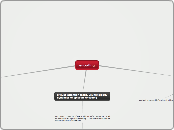によって Stephen Todd Ostrow 12年前.
349
encoding
Holographic reduced representations are used to encode information in a manner similar to how neurons fire to create images, making it possible to store and retrieve data compactly and associatively.

によって Stephen Todd Ostrow 12年前.
349

もっと見る
two uses: cognitive psych and mathematical encoding/decoding operations
young
no issues with encoding or recall of new memories
elderly
failure of emantic and episodic memory to work together. not encoding new episodic memories=no recall of new mmories.
DA young=FA young. compensatory memory. scaffolding.
compensation is deliberate. consistent w hypothesis
right hemisphere seperated
can match auditory cues to pictures/cannot make auditory cues from pictures. Unable to effectively match alliteration and rhyming words reliably. When given tests second time, sporadic shifts to lh, along w imporvement in performance. Can match sound to spelling but not spelling to sound.
conclusion: right hemisphere is necessary for encoding
left hemisphere seperated
able to match auditory cues to pictures and make auditory cues from pictures. Able to match alliteration and rhyiming well. Able to read aloud